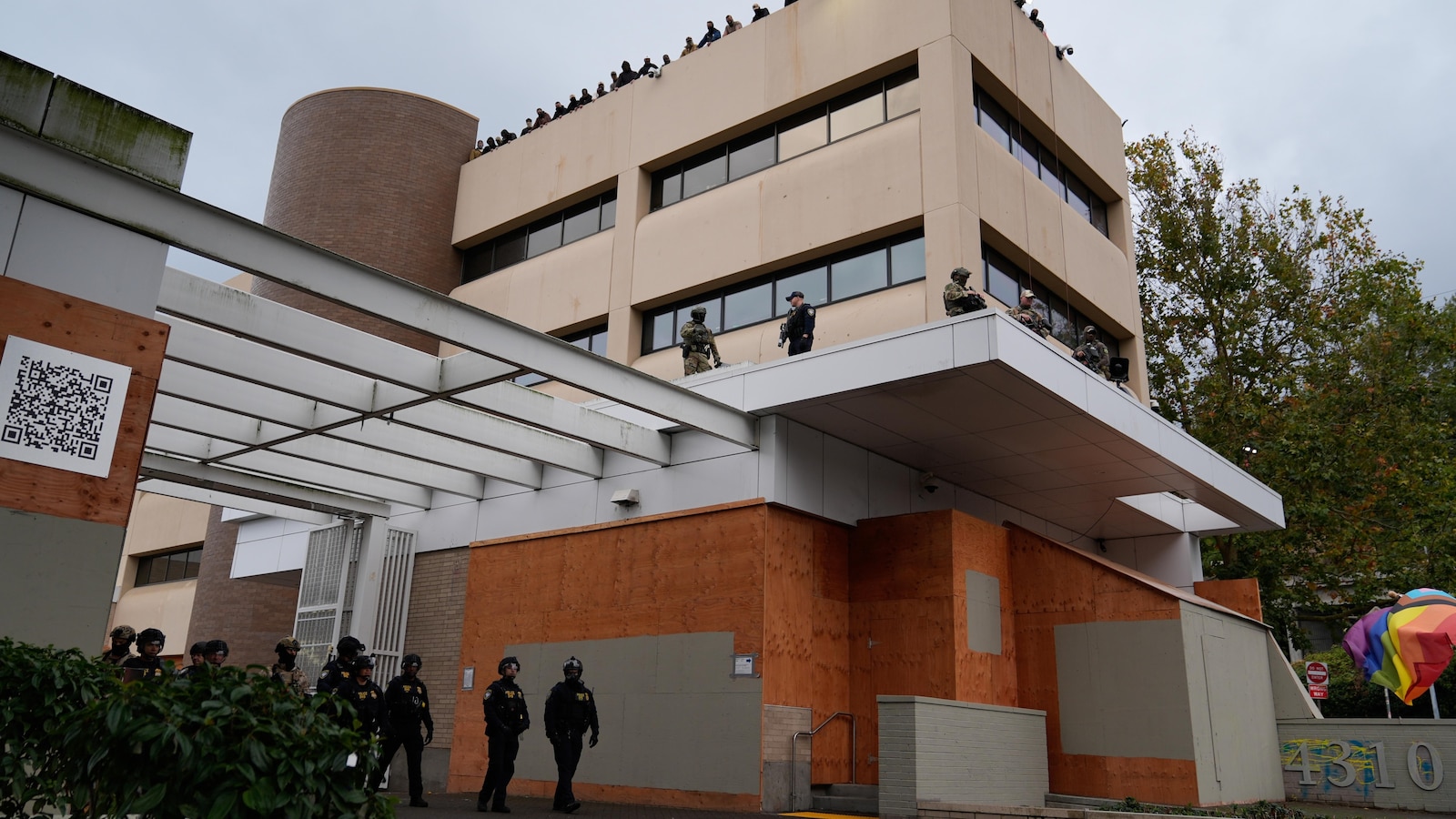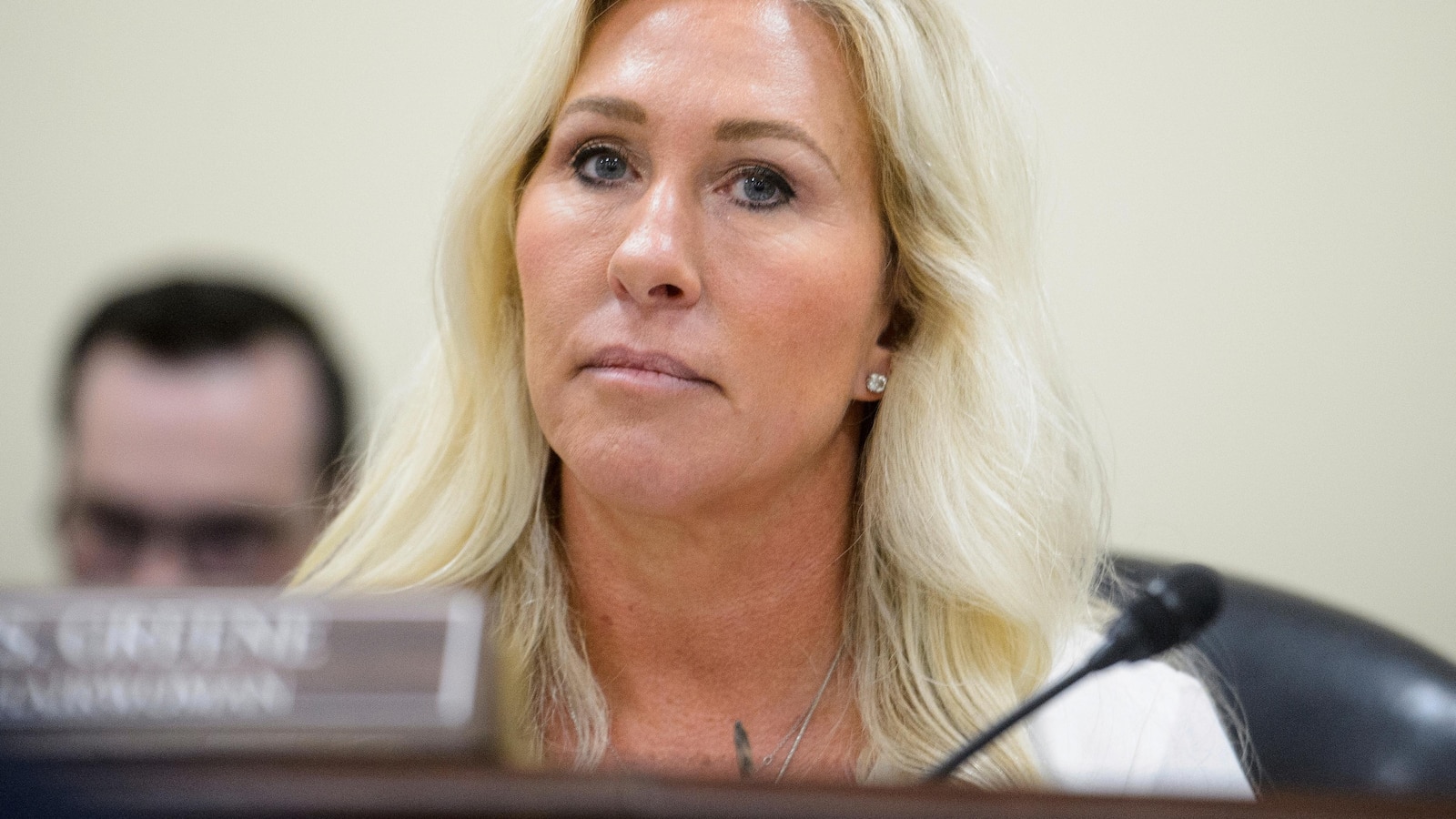ICE making arrests during green card interviews in San Diego, attorneys say

ICE has begun a new tactic in San Diego, multiple immigration attorneys say: detaining people during their interviews for legal status at U.S. Citizenship and Immigration Services, a place that has traditionally not seen enforcement before.
“I’m shocked, honestly,” said immigration attorney Emily Wietzel. “I mean, I always think that there’s not a point where I could be shocked again, but this week has brought a new level of shock. And I just want people to know what’s going on.”
USCIS is the agency responsible for processing things like visa and green card applications, and the San Diego office on Front Street is where people go for their final interviews to become permanent residents or citizens.
Immigration attorneys and volunteer observers said, beginning this week, ICE agents made a handful of arrests at that office of people in legal pathways who came to those interviews with no idea that they would be taken into custody.
One man, a U.S. citizen born and raised in San Diego, said he lived for several years in Mexico, where he met his wife. They decided to move back to the U.S. last year, and she and their two children, now 18 and 14, entered the country on visas that have since expired as they went through the legal process.
The man, who NBC 7 is not identifying for his family’s safety, said ICE agents came to their green card interview Wednesday and arrested their 18-year-old son, first incorrectly stating he had entered the country illegally, then telling his parents it was because his visa had expired. The man said his wife asked the agents to take her instead, but they told her she needed to stay back and take care of their younger daughter.
The man said his son is a recent high school graduate who has never committed a crime and he watched as agents led the teen away in handcuffs, ultimately taking him to be held in the basement of the federal building a few blocks south.
The agents also told his mother to go to that same building, which houses ICE’s field office, to check in with the agency and get an ankle monitor. The family questioned why ICE chose to pursue them at their interview, when their home address has been on file with USCIS throughout the entire process. They said when they arrived at the ICE office to check in, they were waiting alongside several other people in the same situation, who started the day at USCIS.
“There are a lot of people in the U.S. who say, you know, you need to get in line,” Wietzel said. “These are the people who are in the line, who have done everything the right way.”
“This is the final step in their process to becoming a lawful permanent resident or a citizen, and we have never seen this before,” said Michelle Celleri, the legal rights director for advocacy group Alliance San Diego. “This is completely inhumane. It’s about numbers and ICE has to meet a certain quota. And an easy way to meet their quota is detaining people who are in the lawful process.”
In a statement, USCIS spokesman Matthew Tragesser said the agency “is responsible for administering America’s lawful immigration system and ensuring the integrity of the immigration process.”
“The agency protects the public safety and national security interests of the American people by screening and vetting aliens coming to this great nation,” Tragesser’s statement continued, adding, “Aliens in our country must respect our laws or face the consequences.”
ICE did not respond to multiple requests for comment about the arrests made at USCIS, or specific questions about the case of the 18-year-old detained Wednesday.
The teen’s father said his son was taken to the Otay Mesa Detention Center but did not sign paperwork for his own deportation, so ICE brought him back to the basement of the federal building. Detainees and their families have to pay to use the phone, so the man said he learned where his son was in a brief call that cost him $53, showing NBC 7 the charge to his credit card.
Immigration attorneys said it’s become increasingly difficult to advise clients, even those who have entered the U.S. through legal pathways, amid these shifting enforcement tactics.
“My job is to help people through this process, to guide them. And there is dignity in process,” Celleri said, adding that she advises clients not to sign anything if they are detained. “You have the right to see a judge and you have the right to seek a remedy.”







